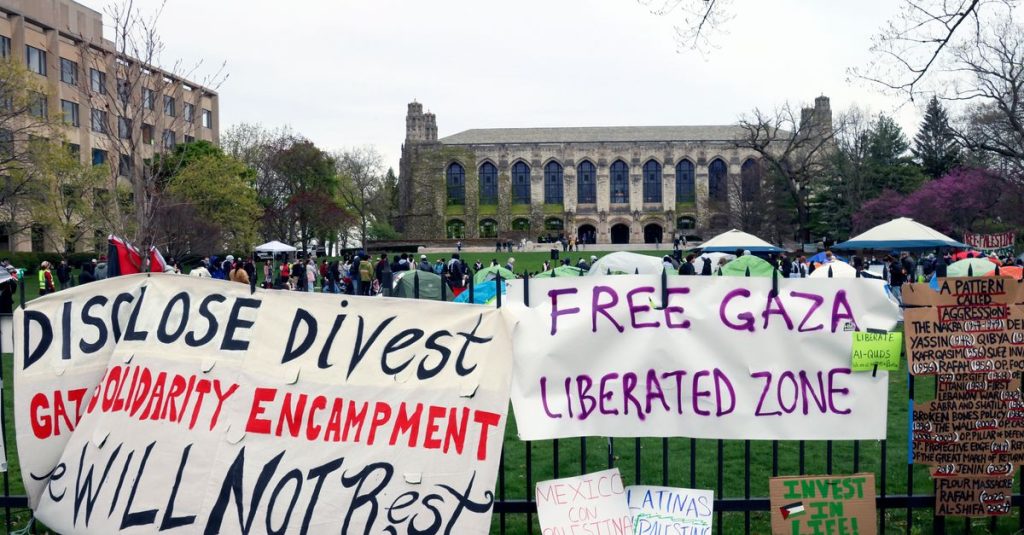Northwestern University in Illinois and Brown University in Rhode Island have both reached agreements with pro-Palestine protesters to end their occupation of campus grounds following student demonstrations against Israel’s attacks on Gaza. The protests have led to calls for school divestment from companies linked to Israel, with many protesters setting up encampments on campus that have been met with police force and arrests. Northwestern officials reached a deal with the Northwestern Divestment Coalition, allowing protests and gatherings through June 1 and disclosing the school’s investments in Israeli-linked businesses in exchange for the removal of most tents from the lawn. The university also assured students that they wouldn’t be punished for demonstrating by outside employers.
The Northwestern Divestment Coalition hailed the agreement as a victory, noting that the university had committed to full disclosure of its investments in companies supporting Israeli apartheid and a pathway to divestment from those holdings. Brown University also reached a deal with the Brown Divest Coalition, with protesters agreeing to remove tents and end the encampment in exchange for a board vote in October on divesting from Israel-linked companies. The university also promised not to retaliate against any members of the community involved in the protests. The Brown Divest Coalition stated that the victory was not the end of their work, but rather a stepping stone towards further divestment efforts and support for protests across the country.
College campuses across the U.S. have seen an influx of student demonstrations in recent weeks, with protesters calling for divestment from companies supporting Israeli actions in Gaza. Encampments and protests at schools like Columbia University have been met with police intervention, arrests, and school suspensions. Northwestern and Brown’s agreements with pro-Palestine protesters signal a shift towards dialogue and compromise, with universities allowing demonstrations and discussions on campus grounds and committing to transparency regarding their investments. The agreements also emphasize that students engaging in protected speech should not face repercussions from non-campus actors.
The agreements between Northwestern University, Brown University, and pro-Palestine protesters have been seen as significant victories for the divestment movement on college campuses. By allowing protests and gatherings to continue through the end of the semester and committing to transparency and discussions around divestment, the universities have recognized the concerns and demands of the protesters. The agreements also highlight the importance of academic freedom and the right to peaceful protest on college campuses, as well as the need for institutions to engage with student activism and advocacy on important social issues.
Moving forward, it remains to be seen how other universities will respond to calls for divestment from companies with Israeli ties and how they will address student protests on campus. The agreements reached between Northwestern and Brown universities and pro-Palestine protesters may serve as a model for other schools facing similar demonstrations and demands for divestment. By engaging in dialogue, promoting transparency, and refraining from retaliation against students and faculty involved in protests, universities can work towards finding common ground and addressing the concerns of their campus communities on contentious issues like the Israeli-Palestinian conflict.


